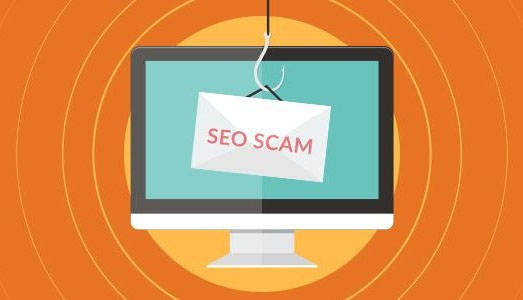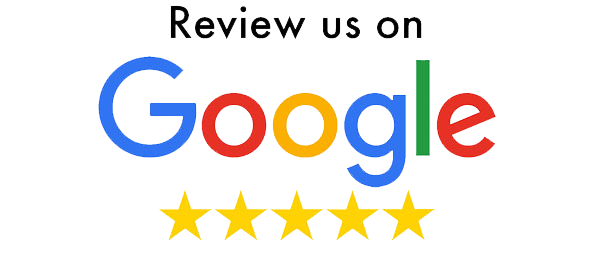SEO Spam Emails Exposed!
In the vast digital landscape, where business owners strive to conquer search engine rankings, a lurking menace often creeps into unsuspecting inboxes—SEO spam emails. With promises of skyrocketing success and top Google rankings, the offers contained in these emails seem too good to be true. Well, guess what? They usually are!
Even as an optimised and highly ranked SEO agency, we get them too. Which just goes to show that these charlatains and scammers are sending out blanket emails to anyone with a website (which they’ve used scraped sofware to find).
So we thought we’d dedicate an article to unveil their dodgy tactics.
Legitimate SEO companies don’t rely on cold outreach. They build their reputation through quality work, client referrals & getting found on Google themselves.
Act 1: The Suspicious Sender
As you open your inbox, there it is—a glittering email from an unknown ‘SEO guru’. They claim they’ve stumbled upon your website and offer to catapult you to the top of search engine results. But wait! Before you get too excited, let’s put on our detective hats and investigate further.
Act 2: The Scam Unveiled
Upon closer inspection, the red flags start popping up like confetti. Poor grammar and generic subject lines scream “scam.” As an SEO company ourselves, even we receive these blanket emails, proving they’re anything but personal or targeted. It’s like a magician revealing their tricks—the illusion shatters, and the reality of spam takes center stage.
Act 3: Spotting and Avoiding the Traps
To shield yourself from the clutches of SEO spam scams, arm yourself with these tips:
- Beware of Unsolicited Emails: Legitimate SEO companies don’t rely on cold outreach. They build their reputation through quality work and client referrals.
- Poor Grammar and Generic Content: Watch out for email content that has lots of grammar mistakes. These are gettting fewer with the increase in AI content writing, so also look out for Americanised Englished. Here in the UK we spell ‘optimisation’ with an ‘S’. IN the USA they spell it with a ‘Z’ as in optimization.
- Impossible Promises: If they guarantee a #1 ranking overnight or claim to have “secret techniques,” run for the hills! SEO is a long-term game that requires strategy, time, and effort.
- Request for Immediate Action: Scammers often use urgency to pressure you into making hasty decisions. Legitimate SEO companies respect your decision-making process and provide comprehensive information.
Act 4: Finding Legitimate SEO Companies
To find a reliable SEO partner, heed these steps:
- Google Search: Perform a simple Google search for SEO companies in your area. The top-ranking results indicate their expertise in the field.
- Check Reviews and Testimonials: Genuine SEO companies have a trail of happy clients singing their praises. Look for authentic reviews and testimonials that demonstrate their track record.
- Ask for Case Studies: A reputable SEO company will be able to provide their success stories through case studies. These real-world examples are the proof of the pudding, showcasing their ability to deliver results.
So, hopefully this article, from a top SEO company in the UK will help you to both ignore these spam scam emails, and arm you with some firm advice on what to look for in a reputabe SEO agency.
Need help? Confused? Book a free 30 minute consultation to discuss what you’re wanting to achieve.
Local SEO Silver
- Total of 4 Keyword phrases: 2 for website and 2 for Google map pack
- 1 hour SEO work including:
- Backlink Building
- Citation Building
- Onsite SEO improvements
- Google Profile SEO improvements
- Rank monitoring & management
- Google Review Management
- Quarterly Report
- Setup fee*
Local SEO Gold
- Total of 8 Keyword phrases: 4 for website and 4 for Google map pack
- 1.5 hour SEO work including:
- Backlink Building
- Citation Building
- Onsite SEO improvements
- Google Business Profile (GBP) SEO improvements
- Rank monitoring & management
- Google Review Management
- Quarterly Report
- 1 GBP Post per month
- Setup fee*
Local SEO Platinum
- Total of 14 Keyword phrases: 8 for website and 6 for Google map pack
- 3 hour SEO work including:
- Backlink Building
- Citation Building
- Onsite SEO improvements
- Google Business Profile (GBP) SEO improvements
- Rank monitoring & management
- Google Review Management
- Quarterly Report
- 2 GBP Posts per month
- Setup fee*
Do some industries get a better ROI on their SEO than others?
While there is no universal ROI benchmark for SEO that applies to all industries, certain industries tend to have higher or lower ROI expectations due to factors such as competition, average order value, and customer lifetime value. Here are a few examples:
E-commerce: In the e-commerce industry, the ROI on SEO can vary widely based on factors such as product margins, conversion rates, and average order value. A study by Shopify found that the average ROI for SEO in the e-commerce industry is 200%. However, some businesses may see even higher returns, especially if they are able to target highly profitable keywords and generate repeat business from customers.
Local businesses: For local businesses such as restaurants, dentists, and hair salons, the ROI on SEO can be extremely high, as these businesses rely heavily on local search traffic to drive foot traffic and bookings. According to a survey by BrightLocal, 94% of local businesses see a positive ROI from their SEO efforts.
B2B: In the B2B space, the ROI on SEO can be more difficult to measure, as the sales cycle is often longer and more complex. However, a study by Conductor found that B2B companies that invest in SEO can see an ROI of up to 30:1. This is due in part to the high value of B2B sales, which can make even a small increase in search visibility highly valuable.
It’s important to note that these ROI figures are averages and may not be representative of every business within a given industry.
Ultimately, the best way to determine the ROI of SEO for your business is to set clear goals, track your progress over time, and make data-driven decisions based on your results.
Where does most of the ROI from SEO come from ?
The ROI from SEO can come from various sources, depending on the specific goals and strategies of a business. However, here are some common areas where businesses typically see ROI from their SEO efforts:
Organic search traffic: By improving their search engine rankings and appearing higher in search results, businesses can attract more organic search traffic to their website. This can lead to more leads, conversions, and revenue.
Brand visibility and awareness: SEO can also help businesses increase their brand visibility and awareness by making their website and content more visible to potential customers. This can lead to more brand recognition, social media shares, and word-of-mouth referrals.
Cost savings: Compared to other forms of digital marketing such as paid search and social media advertising, SEO can be a cost-effective way to drive traffic and revenue. This is because once a website ranks well in search results, it can continue to generate traffic and leads without ongoing ad spend.
Long-term value: SEO can also provide long-term value to a business by establishing a strong online presence and building trust with potential customers. Over time, this can lead to more repeat business, referrals, and customer loyalty.
It’s important to note that the specific sources of ROI from SEO can vary depending on a business’s industry, goals, and target audience. That’s why it’s crucial for businesses to set clear goals and regularly track and analyze their SEO performance to identify what strategies are working and where they can optimize their efforts.
Local SEO Silver
- Total of 4 Keyword phrases: 2 for website and 2 for Google map pack
- 1 hour SEO work including:
- Backlink Building
- Citation Building
- Onsite SEO improvements
- Google Profile SEO improvements
- Rank monitoring & management
- Google Review Management
- Quarterly Report
- Setup fee*
Local SEO Gold
- Total of 8 Keyword phrases: 4 for website and 4 for Google map pack
- 1.5 hour SEO work including:
- Backlink Building
- Citation Building
- Onsite SEO improvements
- Google Business Profile (GBP) SEO improvements
- Rank monitoring & management
- Google Review Management
- Quarterly Report
- 1 GBP Post per month
- Setup fee*
Local SEO Platinum
- Total of 14 Keyword phrases: 8 for website and 6 for Google map pack
- 3 hour SEO work including:
- Backlink Building
- Citation Building
- Onsite SEO improvements
- Google Business Profile (GBP) SEO improvements
- Rank monitoring & management
- Google Review Management
- Quarterly Report
- 2 GBP Posts per month
- Setup fee*
Is Google the best source of organic traffic?
Google is generally considered to be the most important source of organic traffic, as it is by far the most popular search engine worldwide, with over 90% market share in many countries. Bing, Yahoo!, and other search engines also contribute to organic traffic, but to a much lesser extent.
However, there are some exceptions to this rule. For example, in certain countries or regions, there may be a significant market share held by a local search engine. In China, for instance, Baidu is the dominant search engine, while Yandex is popular in Russia.
Additionally, some businesses may find that they receive significant organic traffic from sources other than search engines, such as social media, referrals, or email marketing. While these sources are not considered “organic” in the strictest sense, they can still provide valuable traffic and conversions.
Overall, while Google is the most important source of organic traffic for most businesses, it’s important to consider other sources of traffic as well and develop a well-rounded digital marketing strategy that leverages multiple channels to reach potential customers.
Wait!
Before you go...
Grab a 10% discount coupon for SEO services!
It could be worth up to £100!
Just send us your email address (we promise not to send you junk - we hate getting it too!) and the coupon is yours! It's valid for 6 months from date of issue.





Follow us on Facebook
[wp_social_ninja id=”987502840″ platform=”facebook_feed”]